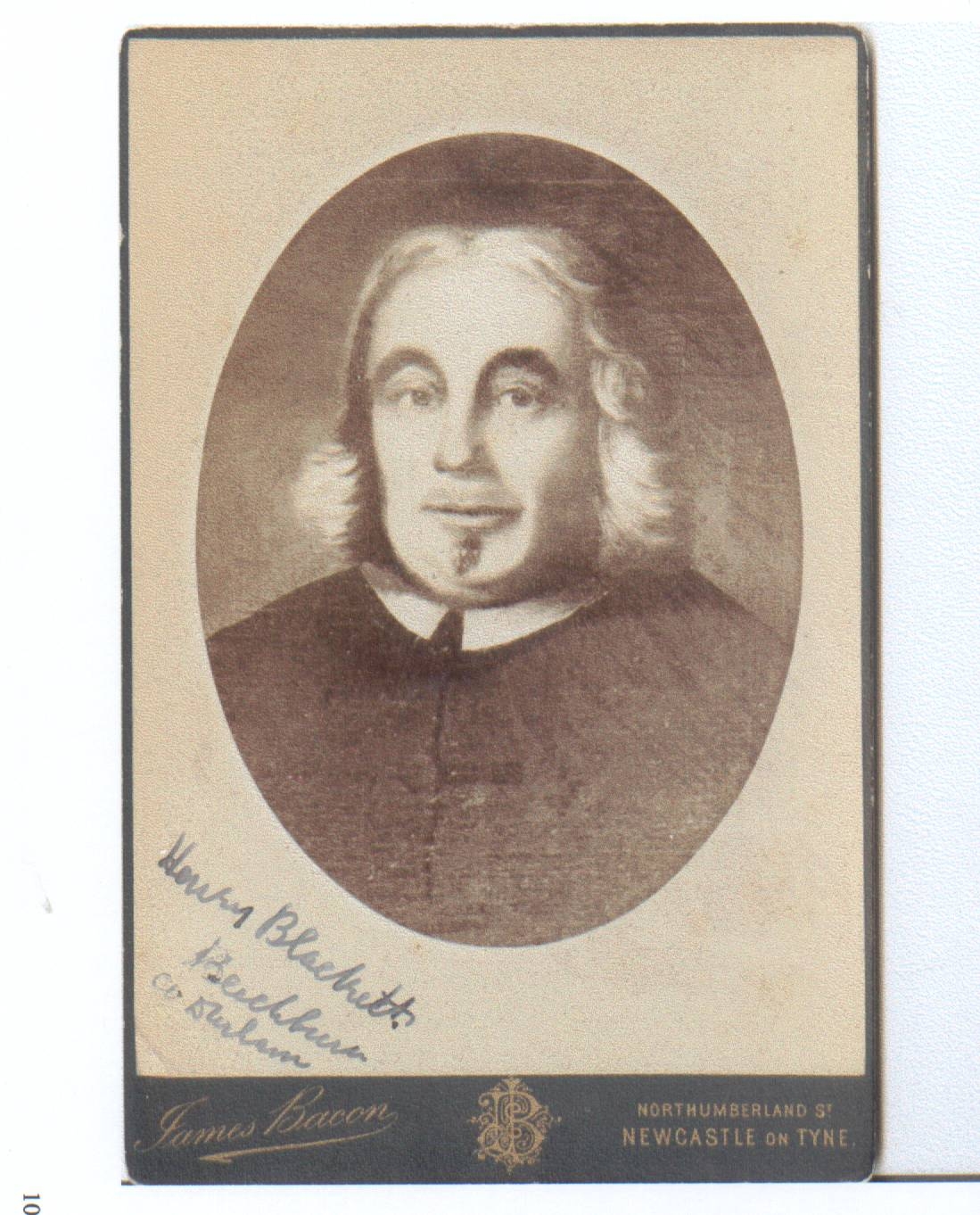
On the evening of 22 October 1641 the infant, Henry Blackett, was being put to bed by a servant in Belfast, Ireland, (some sources say Dublin), where his parents had been living for some years.
The servant, a Catholic girl, had learned of an impending attack by Catholics on Dublin Castle at midnight that night which was intended to spark a rebellion across the whole of Ireland, and lead to what has become widely known as the Irish Massacre. This caused great distress to the servant, who was fearful for the pious family for whom she worked, and particularly for Henry, to whom she was warmly attached, and with whom she usually slept.
As she was bending over Henry she was seen to be weeping and was heard to say “My dear Henry, farewell. I shall never sleep with you again!” On learning of this, Henry’s parents anxiously enquired the reason for her grief. “Fordyce’s History of Durham” contains an account (which could have been written by Barbara Cartland!) of what happened next. “She hesitated. Fear for her own life, fidelity to the party she was connected with, affection for the family she served, and warm attachment to her little charge, all these combined, wrought powerfully within her throbbing bosom; and at length, humanity and endearment triumphing over her religious scruples and bloody fidelity, she divulged the Roman Catholic secret of the intended attack on the Protestants of Dublin next day.” Henry’s parents immediately made preparations to leave Ireland for England, which they did on 23 October.
Henry eventually became a draper in County Durham, and for more than 40 years was an Anabaptist pastor, living at Bitchburn, near Witton le Wear. He was an elder of the church and in 1689 was a “messenger” at the Anabaptist General Assembly in London. Services and meetings were held regularly at his Bitchburn home. He died on 23 October 1704, exactly 63 years after his family’s flight from Ireland. [1]
As well as preaching for the church, he was kindly to his Christian friends, accomodating in his house those who had come a great distance to the services. A traditional saying of his, repeated down the years among his descendants was:
“I have room in my stable for your horses; I have room in my house for yourselves; but I have still more room in my heart.”
[1] Some sources show his death as 23 Oct 1705.
